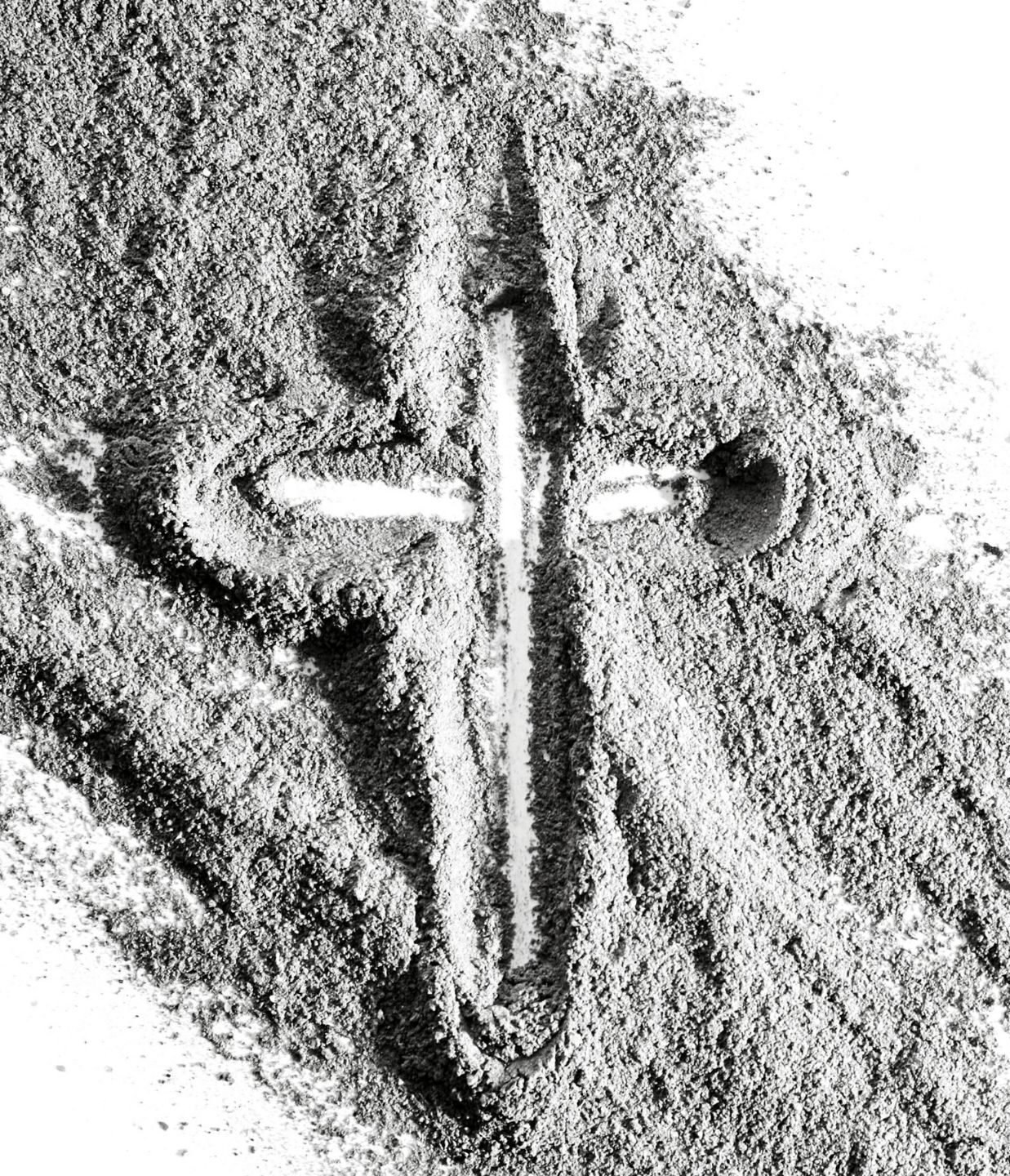Watch the livestream beginning at 8 a.m. on Sunday. After the livestream is finished, the video will be available to watch at any time.
Gospel: John 15:1-8 (NIV)
Music:
- Hymn: CW 938 “This is the Feast”
- Hymn: CW 709 “Christ the Vine”
- Hymn: CW 595 “Fruitful Trees, the Spirit’s Sowing”
- Hymn: CW 454 “Alleluia! Jesus is Risen”
Easter 5 April 28, 2024
John 15:1-8 Pastor Wolfe
God’s Garden Produces Good Fruit!
While we’ve never been very good at it, over the years my wife and I have tried to grow gardens at the different places we’ve lived. Usually vegetable gardens that grew more weeds than food, but maybe this year will be the year, right? They say hope springs eternal.
Whether you are a master gardener or an accomplished weed grower every gardener has the same purpose. We want our gardens to produce good fruit. What use is weeding and hoeing and watering if the corn doesn’t produce cobs or the pumpkin vine never grows any pumpkins? We take care of our gardens so that they will give us fruit to enjoy. In John 15 Jesus uses a garden as a picture of God’s relationship with us. And God’s Garden Produces Good Fruit! The Father Tends the Branches, and the Branches Bear Fruit for the Father.
We may not see vineyards on the side of the road everywhere in Minnesota, but vineyards were an important industry in Jesus’ day. They were a critical part of Israel’s economy and everyone knew at least something about raising, pruning, and harvesting grapes. That made the picture of a vineyard a natural one for Jesus to use when he wanted to explain to his followers their relationship with God.
It’s really a very simple picture. Jesus is the main vine in the vineyard and all of us are branches growing off of him. God the Father himself is the gardener who tends to the branches. In other words, God is the one who takes care of us and does the work so that we produce good fruit. Jesus says in verse three,”You are already clean because of the word I have spoken to you.” The word of Jesus tells us that he took away the guilt and punishment for our sin on the cross. It shows us the empty tomb on Easter morning that assures us of Jesus’ victory. That Word is how we wild branches were grafted into the vine of God’s people. Not strangers to the forgiveness of God, but connected to it, drawing strength from it. Finding our hope in it.
Because God connected us to Christ through his word we can repent of our sins and know that we are forgiven. That’s exactly what you did at the beginning of our service when you confessed your sin publicly and I assured you once again that our God in heaven has forgiven those sins. But being a forgiven branch connected to Christ doesn’t mean that God will give you an easy life. We read in verse 2, “He cuts off every branch in me that bears no fruit, while every branch that does bear fruit he prunes, so that it will be even more fruitful.” Setting aside the branches that are cut off for a moment, note that Jesus says the ones who are bearing fruit will be pruned so that they bear even more. That’s us in this picture! One of the jobs of a gardener is to prune the branches on the grapevine. Yes, he cuts off the dead ones, since they can be a place where bugs and disease grow, but a gardener also cuts a lot of living branches off the vine too. He trims them, sometimes deeply, but while the cutting seems drastic, he does it so that the branches reach their full potential. With the extra parts cut off, the fruit that grows from the rest is bigger, fuller, better.
This is what God does to you. He prunes you. (The Greek word here is literally the same word as “cleans” you.) He cuts into your life, and removes some things that you might not want removed. He takes things away from you, he changes things around for you, and sometimes, it seems drastic and extreme and unnecessary. We find ourselves wondering, “Why are you doing this to me, God?”
But God cuts into our lives for a reason. He wants us to reach our full potential as Christians. He wants us to produce as many fruits of faith as possible. Perhaps some of you are going through the pruning process right now. An unexpected blessing gets taken away as quickly as it came. A door you thought was open closes right in your face. The financial security that you thought you had evaporated overnight. It happens to all of us. God prunes us in different ways, but in every case he cuts off just the right amount in just the right place.
Not long after teaching the disciples the Lord’s Prayer Jesus reminded them that God gives us what is best, not necessarily what we want. He told them, “Which of you, if his son asks for bread, will give him a stone? Or if he asks for a fish, will give him a snake? If you, then, though you are evil, know how to give good gifts to your children, how much more will your Father in heaven give good gifts to those who ask him!” God knows what we need (and what we don’t) better than we do ourselves. So if you find God’s knife pruning at you from time to time, let go of what the gardener has determined needs to go, and rejoice that the gardener works.
You can do that if you remember the goal of that pruning and tending is that each of us becomes a more fruitful branch. In verse 8, Jesus says, “This is to my Father’s glory, that you bear much fruit, showing yourselves to be my disciples.” The fruitful Christian is one whose life is filled with good works for God. And Jesus shows us here the two reasons for our good works. (And notice neither one of them is to get connected to the vine. Rather we do good works because we’re already connected. We are saved by grace, not works!) No, the first purpose of our works is to bring God glory. Every good thing we do is a testament to his love for us. Every sacrifice we make for him is prompted by his sacrifice first for us.
The second reason for our good works is that they show who Jesus’ disciples truly are. Jesus commanded his disciples the night he was betrayed to love one another. He told them, “By this they will know that you are my disciples…that you love one another.” The Apostle James tells us in chapter two of his letter, “Faith by itself, if it is not accompanied by action, is dead.” Don’t be fooled, while the way we live our lives, the good works we do or don’t do, have nothing to do with our place in heaven – these good works critically matter. They matter to God as we give him glory, and they matter to others as we show them what disciples of Christ look like. The reality of Jesus – his death and resurrection, his salvation given to us – it must move us to an active faith or it hasn’t moved us to faith at all. If we are in the vine of Christ, we will bear much fruit. Not might, not must, not can or could…but WILL.
Eight times in these eight verses, Jesus utters the word “remain”. Jesus was very clear about the consequences of losing our connection to him. Verse six, “If you do not remain in me, you are like a branch that is thrown away and withers; such branches are picked up, thrown into the fire, and burned.” When a gardener goes through the vineyard and sees branches that never bear fruit, he cuts them off, throws them into a pile, and eventually burns the pile of dead branches.
The frightening thing about this part of the story is that Jesus isn’t talking about unbelievers or the rest of the sinful world. He’s talking about something that can happen to us. These are people who at one time were Christians, were connected, but somehow, for some reason, stopped producing fruits of faith. Perhaps the devil tricked them into thinking that some particular detail of God’s law doesn’t apply any more. Perhaps they fell into the trap that if the rest of the world is doing it, then it’s okay for me too. And as they became more and more like the rest of the world, they became less and less connected to the true vine, Christ. They cut themselves off from the source of faith and they withered away. I’ve rarely seen a Christian suddenly lose their faith. I’ve too often seen it wither away bit by bit.
So how does a believer connected to the vine avoid becoming a withered branch? How do we become even more fruitful in life? The answer is by staying connected to the vine. Look at verse 4: “Remain in me, and I will remain in you. No branch can bear fruit by itself; it must remain in the vine. Neither can you bear fruit unless you remain in me.” There is only one way to maintain that connection with Christ, and you know the way. You’re doing it right now – by having regular contact with the word, and regular contact with the sacrament. God’s Word, and the Lord’s Supper – that’s how you remain in Christ, and how he remains in you.
The story is told of a tribal man from a remote mountain village who years ago had the opportunity to visit a large modern city for the first time. He could not bring much home with him, and he had little money. But he was amazed at the electric lights which he saw everywhere. So he bought a sack full of lights bulbs and sockets with switches so he could turn them off and on.
Arriving home he hung the light bulbs in front of his home and on his and his neighbor’s trees. Everyone watched him with curiosity and asked him what he was doing, but he just smiled and said, “Just wait until dark – you’ll see.” When night came he turned on the switches, but nothing happened. No one had told him about electricity. He didn’t know the bulbs were useless unless connected to a source of power.
Jesus is all the power we need. For salvation AND for life. He brought us to himself, he strengthens our bond in Word and Sacrament. He is the one true vine, and we are blessed to be counted among his branches. Pray that God continues to make his garden grow, and that we would be part of producing that bountiful harvest. God bless us to produce good fruit. For him and for all. Amen.

